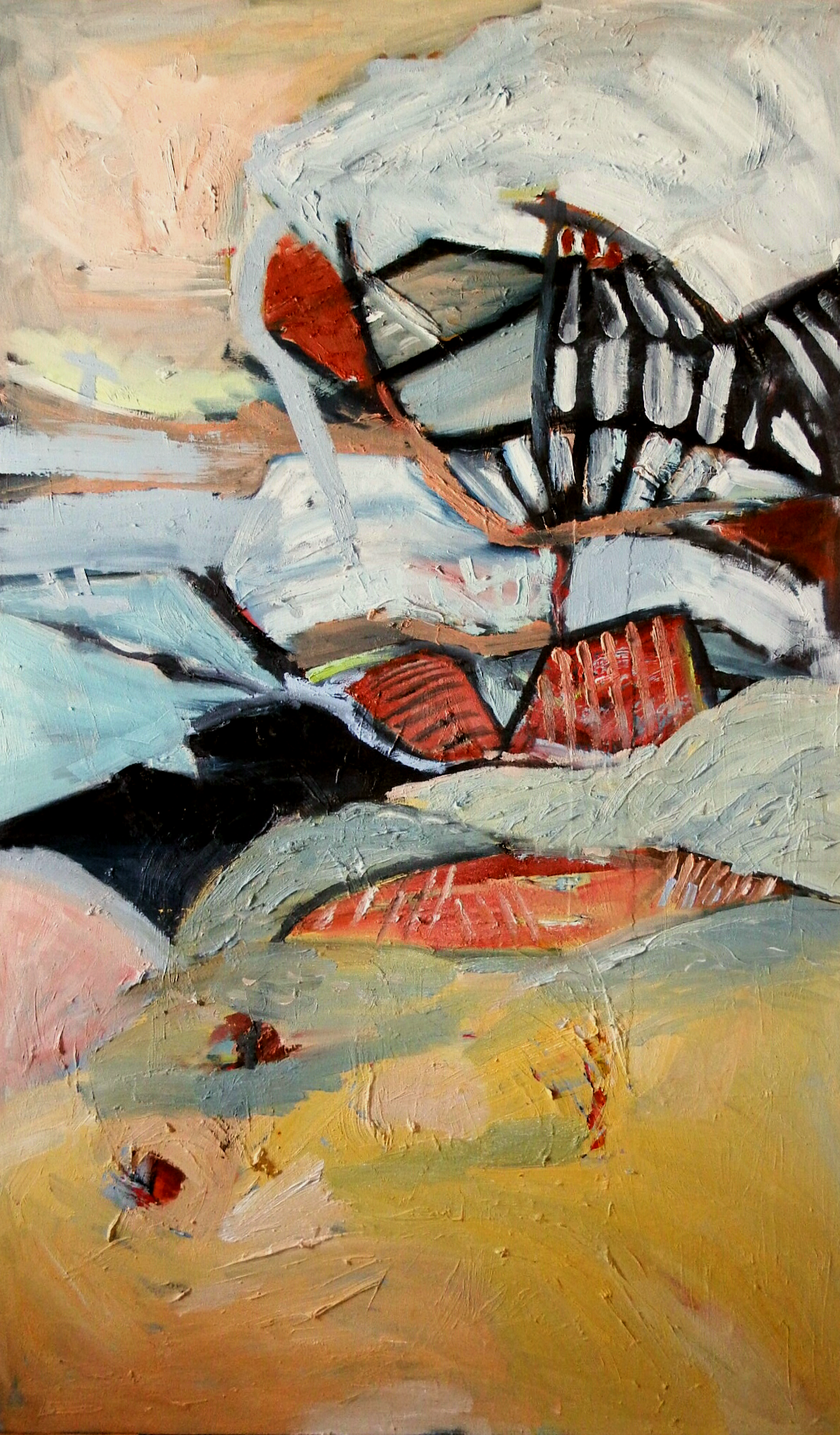Jeff is a Chicago based abstract artist. A former CFO, he started painting in 2015. We had a wonderful conversation about his creative energy how that relates to his life and his artwork.. I am pleased to share my conversation with Jeff Cote.
Additional Information
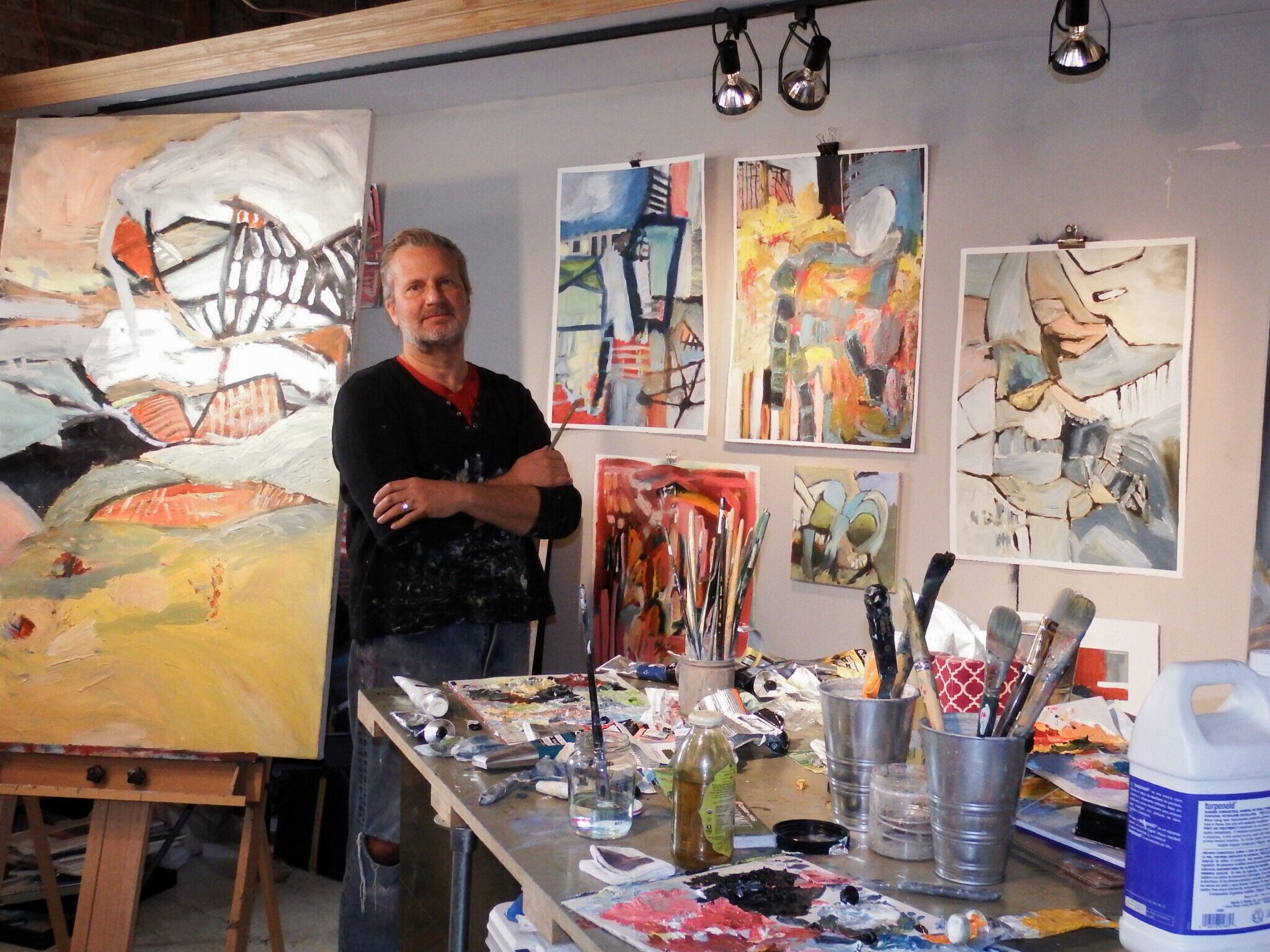
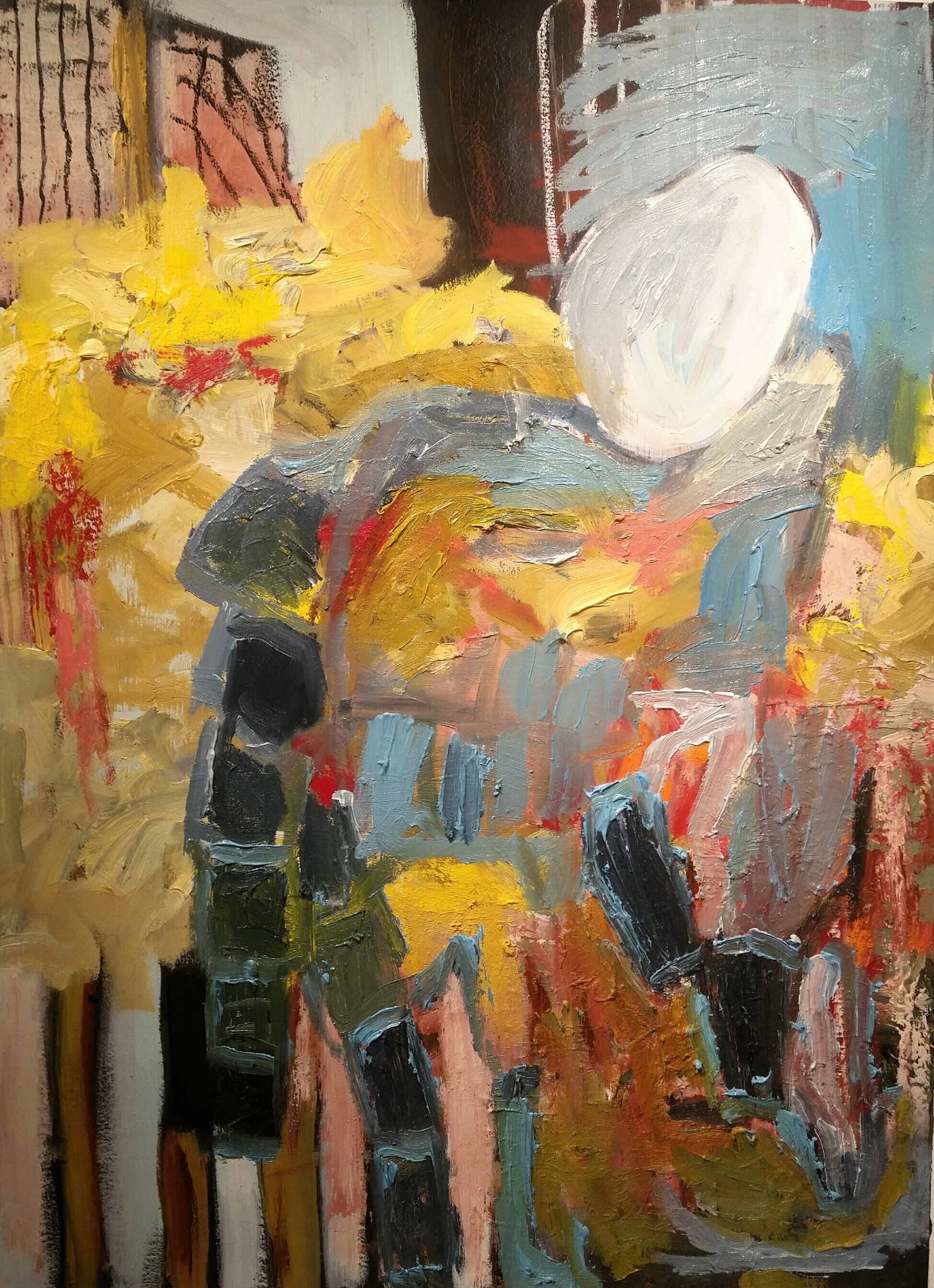
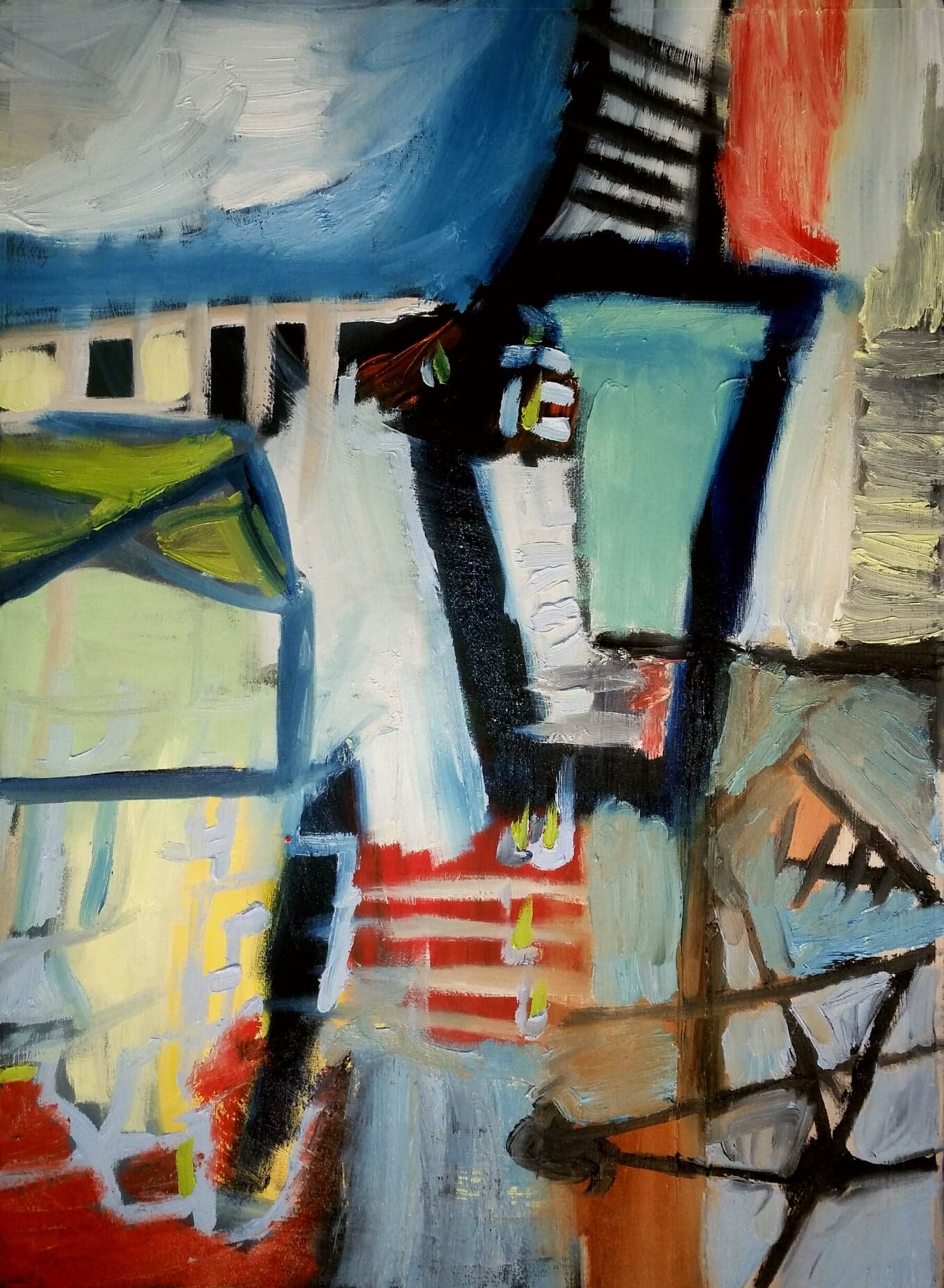
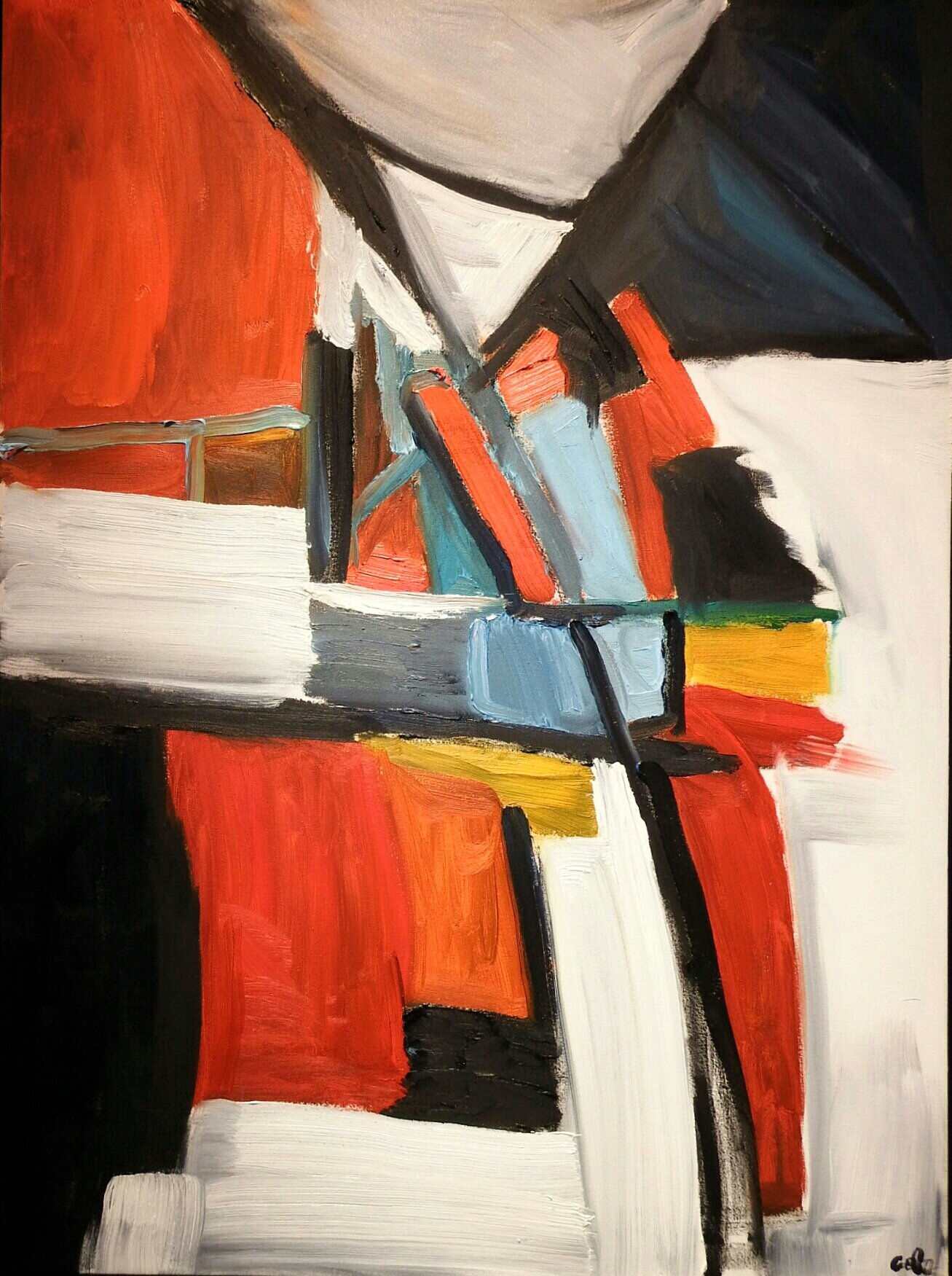
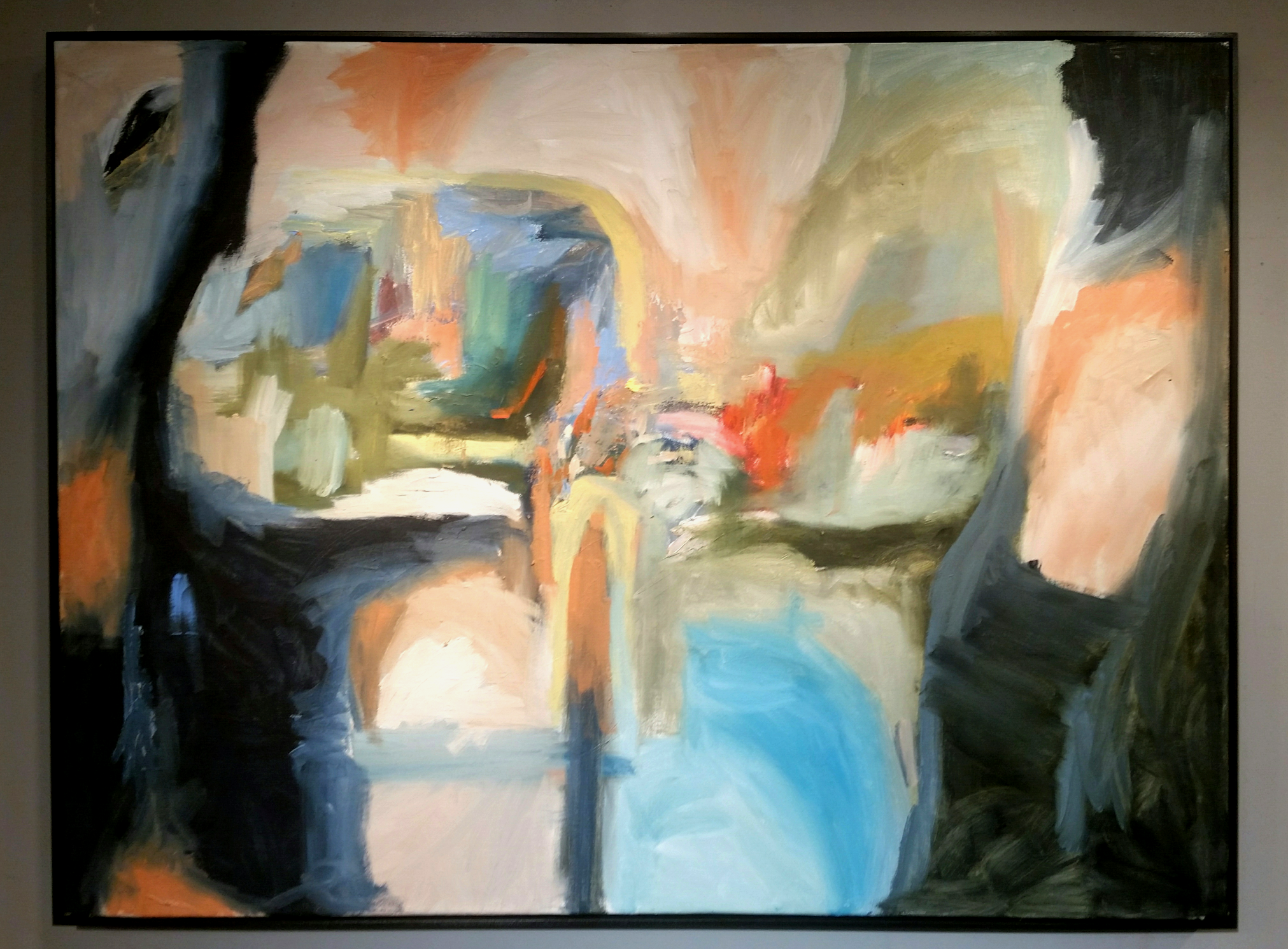
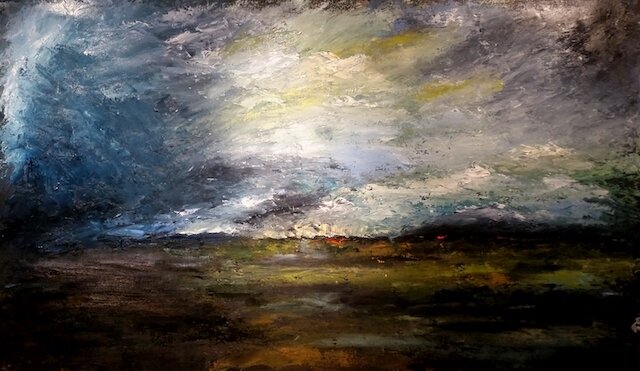
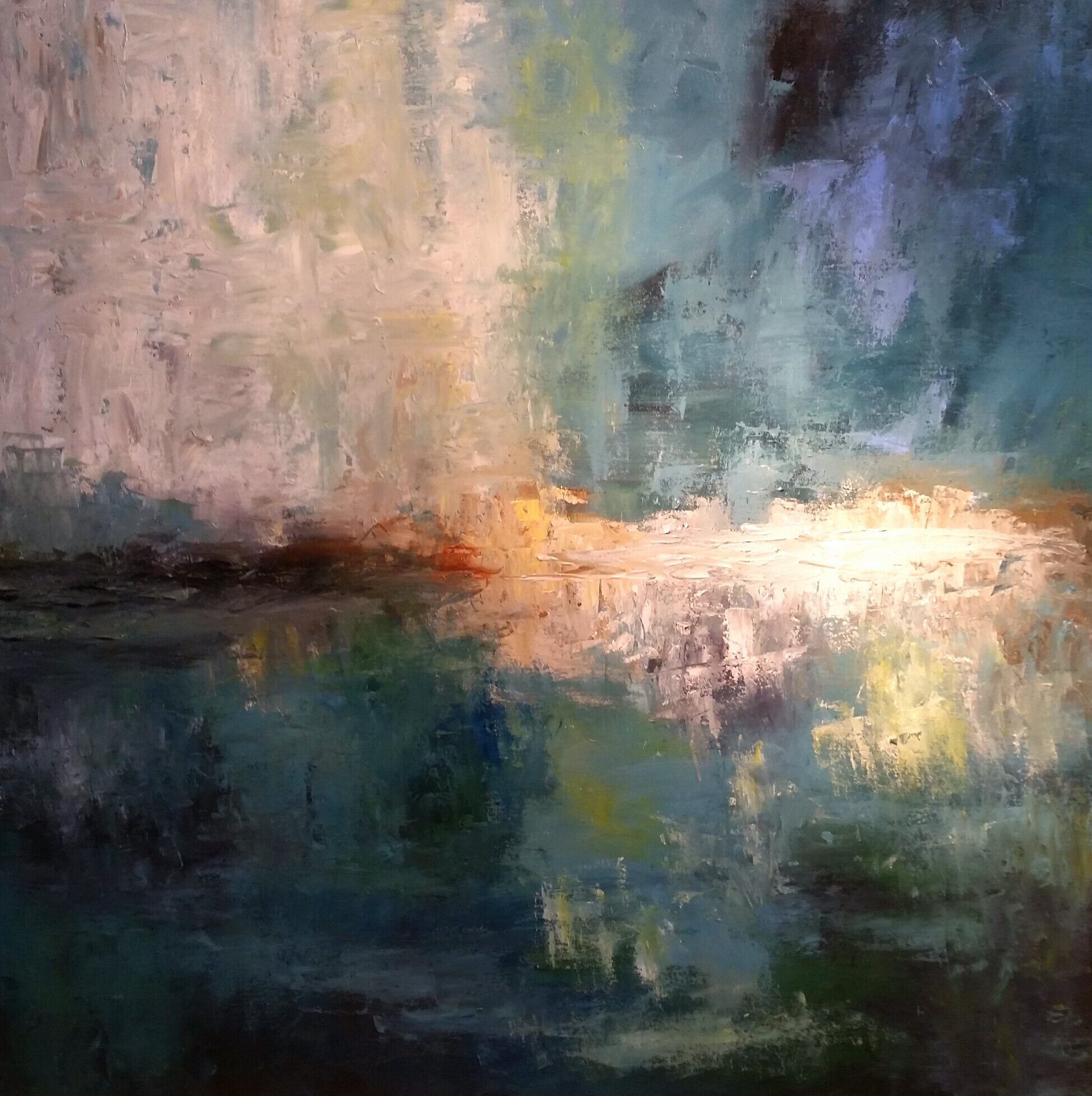
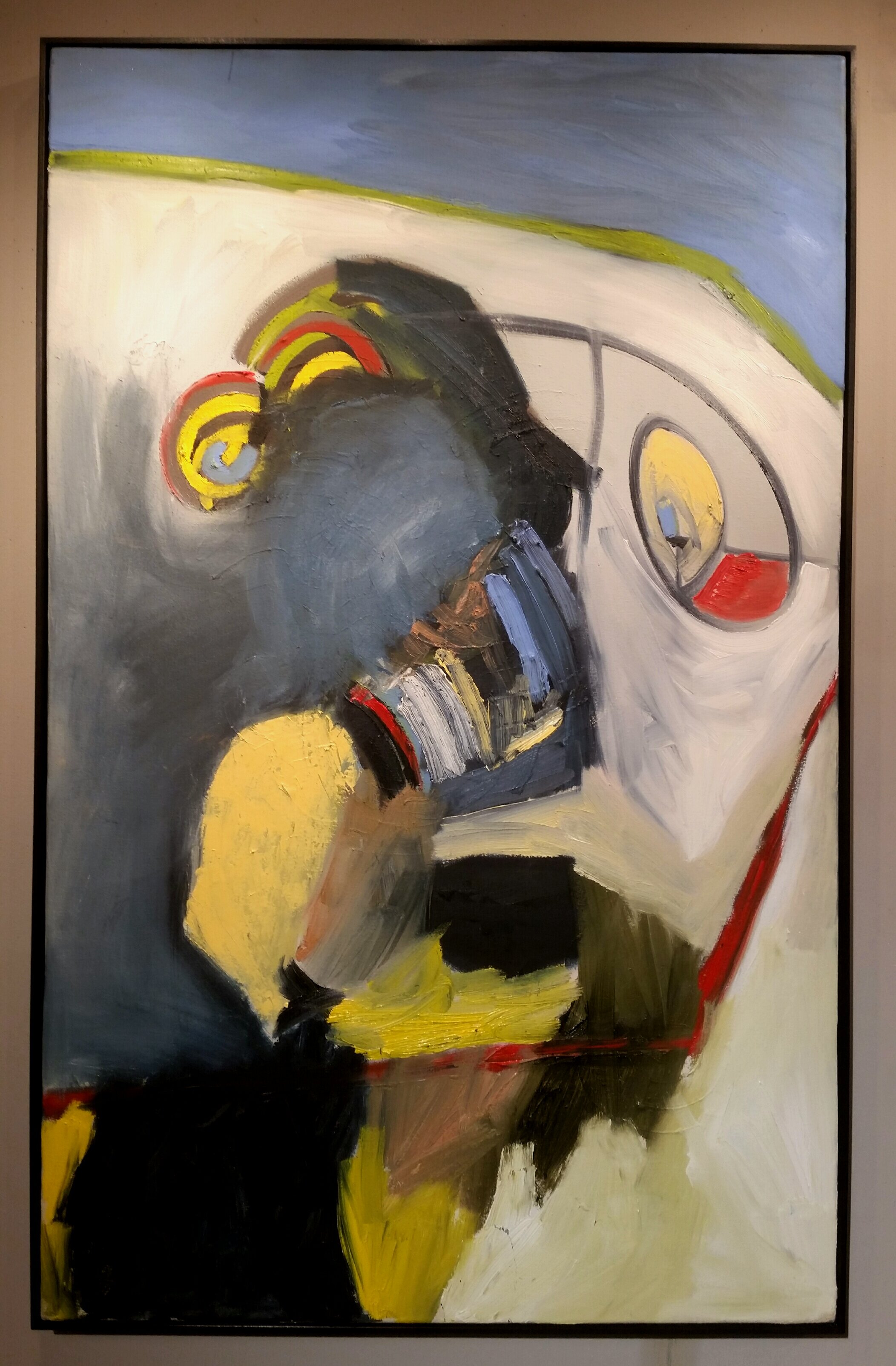
Connect with Ricky and the EAGER TO KNOW Community
TRANSCRIPT
Rick McEachern (00:43): So let's talk about your artwork. Obviously I am not an abstract painter and you are, and I am very curious about your work. And I'm generally in general, curious about abstract art. I'm particularly curious about yours because it's very unique and it's very, it's very diverse, actually.
Jeff Cote (01:06): It is. It is, you know, that, that bothered me sometimes in that I don't feel there's a cohesiveness, but you know, I paint whatever comes to mind and I, you know, I don't paint to sell, but you know, if it works and it triggers some emotion or inspiration in the viewer, then, you know, wonderful. Ricky McEachern (01:26): Okay. So you don't paint to sell you paint to what?
Jeff Cote (01:29): The title that I named, that I used for my website that actually is I paint so that I can touch paintings. You know, it's especially the very thick, heavy paintings that you see in museums and whatnot. You just want to go up and touch it and get really close and see, you know, how does a brushstroke feel or, you know, you want to interact physically with the painting. You know, that came, that came after two or three years of taking lessons and getting to the point where I am now, but I paint to release energy. I paint to basically get rid of emotional energy that that is, you know, that's driving a work in a whether good or bad it ends up on the canvas. And that's, that's a great feeling when you're done with that. During the painting process, there's an extraordinary amount of energy that flows through the body onto the canvas.
Ricky McEachern (02:17): How long ago did you start painting?
Jeff Cote (02:19): I started painting summer of 2015. I was fortunate to retire at 50 years old and I engaged in our teacher and she took me on this incredible journey of, you know, the first two years were teaching me technical technical matters of artwork, you know, basically how to hold a pencil, how to draw with a pencil. And then we started going through all the mediums through inks and watercolors, acrylics, and finally ending up in oils. And what's fascinating about that process is she never taught me or had me look at our history. She wanted see what came out of me before she started referring me to the various artists in history. And I, I loved that approach to teaching because that, that really allowed me to paint without reference. And it's, it's been an incredible journey. And now that I have, you know, these, these styles that are emerging, she's referring me back to the various artists who use these styles to paint and create. So it's really interesting to see how this is developing.
Ricky McEachern (03:28): Why did you decide to do art? Were you trying a variety of different things and then you, this was the one that stuck.
Jeff Cote (03:39): I came from a financial background, so I was a tax guy, a CFO for a private equity firm and did that for 20 plus years. So you have a, a very, very structured environment to work in. When I retired, I wanted, you know, I've always thought about art. You know, during the 20 years of being a CFO, my partner and I traveled a great deal and we collected art from around the world. So I've always had a tremendous appreciation for art. I wanted to see if I could create the same. So the engagement of this teacher was one of the few things we did after my retirement. We also became certified scuba divers. So that that's where we spend, it's still spend a lot of our travel time is on scuba scuba trips. But art really is where, you know, like you said, I'm here almost every day and I really enjoy coming to the studio and painting.
Ricky McEachern (04:32): It sounds like it was a sense of curiosity about maybe I have something inside of myself, like I've been observing this artwork. I appreciate art. I collected what, you know, maybe there's something inside of me that could actually create it. It sounds like that's what happened. And you made, you took some steps. Where, what was your confidence level? You know, someone who doesn't have an art background, were you hesitant or did you just jump right in?
Jeff Cote (05:02): So, so the art teacher, we engaged, we had her come to the house for private lessons once a week. We spent an hour with her. I did, and then my husband joined later. But so I would, you know, the first two years I was calling her and trying to cancel a lesson because I didn't do the homework that she put in front of me from the week before. And I would get frustrated because I couldn't produce what I had in my mind. Eventually that stat lack of confidence started to go away. And I started to realize that it doesn't have to be perfect. It doesn't have to look like something. And I think that's why I started to tend toward abstraction. I still can't draw, you know, to save my life. I am challenged with proportion, especially if a figure, you know, that's, that's very hard for me to see proportion and, you know, whatnot. But abstraction started to make a lot of sense with, for me.
Ricky McEachern (06:04): That's interesting that you say you were not able to create what was in your head and coming from a financial background, that's all about it's control and rigor and it's numbers. It's spreadsheets. Yeah. So like, you know what you are planning on doing for the day when you are a CFO and you do that, you know what your plan is for the quarter, you have plans for the year and it's all on whatever spreadsheets now you're going into something where you, that's not happening. So was that like, what did that feel like? Did it feel like I'm a failure, obviously you worked through it and you made an adjustment and you, you know, went with the abstract, but I'm kinda curious about how you felt and your confidence, and the reason why I'm asking this is because a lot of people are interested in using the creative part of their brains that listen to this podcast. And oftentimes they're not currently doing that. So it's a whole nother way of thinking, and it's a whole nother way of dealing with work and challenges and planning your day. And so a lot of times people will just give up or they have whatever kind of reaction. So I'm really curious about what that experience was for you and how you got through it.
Jeff Cote (07:30): So coming from the financial background, it basically was, was loaded with structure. Everything that I did was structured, you know, you had to follow rules you know, tax law financial gap, reporting rules, things like that. So everything had a structure around it. I still have that. And what's interesting is there's so much structure within the work that I do now. And you can see some of the pieces behind me, you know, there's, there's a lot of structure. What I do is a lot of times I paint, outline completely doodle and then start to go back in and fill in the spaces or abstract that doodle or drawing and whatnot, and started to fill that in how I felt about it. It's, it's interesting. There, there is every once in a while say every, every 30 paintings or so I feel good about what I lay down in the first, first layer.
Rick McEachern (08:22): Most of the time I let those layers dry and go back because it doesn't look right to me. It doesn't feel right. And I start to build up the layers and over time, what's, what's interesting is I'm, I have never not been able to finish a painting to my liking. I will eventually work on it until I, I like it until it makes sense from a compositional perspective and from, you know, from a pallet perspective, you know, how I felt about it. It's, you know, I never, I, I didn't gain the confidence until about a year or so ago. In 2018, I hit my first show at the center on Holstead. And the show was curated and it was primarily lab landscape abstraction, some, some realistic landscape, mostly abstract landscapes. And I thought they were okay. You know, they were probably my first cohesive body of work.
Jeff Cote (09:15): Did the opening. And I had, I think 120 people at the opening, which was great, you know, it was mostly family and friends, but during the run of that show, I sold 50% of the show, which I just assumed that always happens. You know, you get a, a crowd, you know, a room full of people, and then you sell half the show when you're done. But from what I understand, you know, that was those, those instances are few and far between. So at that point, I started to realize that I had something that people enjoy looking at and more so people enjoyed buying. So it's, it's been an interesting path of gaining that confidence over time. It's still, you know, there are still paintings on that. I'm working on that. I have no confidence in and, you know, I want to shred it, but I know that I can use it for a future piece, letting some of the under underlaying layers live or bearing it and whatnot. But, you know, eventually getting to the point of confidence,
Ricky McEachern (10:07): You mentioned that there's a lot of energy that is coming through you and onto the canvas. Where did you put all that energy before you started painting?
Jeff Cote (10:20): That's a great question. I think a lot of it went into my focus in work. You know, that the job that I left was incredibly demanding, you know, working anywhere between 70 and 90 hours a week. So I was able to, I guess, focus that energy and just concentrate on doing the best job that I could. I would actually work out every morning before I would go, go to the, go to my office. So that was a tremendous release of energy. What's interesting is since I've retired, I've not really worked out like that. Not, not a cardio workout. We do Pilates a few times a week, which is a great re release of energy and it, you know, it's not cardio, but it releases the, you know, the energy stored in the muscles by stretching and whatnot. But the creativity, you know, I, I did various projects. I bought a house in 2006 and did a complete gut rehab on it and rebuilt it to my vision. And, you know, it turned out beautifully. So that was a great outlet. But otherwise I think the energy went into simply working very long hours and focusing on doing a great job,
Ricky McEachern (11:23): Is that a trait that you've always had, you know, even as a kid, you've always been a, have a lot of energy that you can redirect into achievement.
Rick McEachern (11:33): Yes. Yeah. We still do. You know, I was joking with a neighbor. We were at home this morning, planting and doing weeding in the garden and whatnot, and a neighbor pointed out. They said, you know, grass never grows under the two of yours feet. And it's interesting, you know, I, I thought about that, you know, when this, when this quarantine began, I had dreams of spending one entire day in front of and binge watching something, but that's never come to fruition. I just, I don't have the ability to sit like that. So there's a constant need to expend energy.
Ricky McEachern (12:02): That's a very different type of direction with directing it towards fitness, which I certainly have done towards you know, your job working a, you know, 70, 90 hours a week to a creative outlet. Like that is a, that is different connections in the brain, especially that is abstract art. So that's why I'm so curious about, and that's why I wanted to talk to you on the podcast, because we did that checking in with where you were talking about your, you know, your artwork. It was a video videos that I did where I'm interviewing artists and they talk about the work and I knew your background and, you know, in finance and you made some sort of comment about, you know, directing all of this stuff in your head, out on the canvas. And immediately my brain was like, okay, I want to know where that used to go before you had the canvas. And, but, so that's a, it's a really fascinating story. You know, you're a a high energy, high achievement type of person. So it certainly makes sense from what I know of you, that you would be successful in whatever you, you know, you would do and whatever you focus on. What is so interesting is that you are able to do something abstract creatively.
Jeff Cote (13:24): Yeah. It's fascinating to see what, what comes out on this canvas. It's no, again, you know, there's no cohesiveness to the body of work that I have, I think. But it's, yeah, it's fascinating to see the energy that comes out in each of these pieces. And, and one thing that I'm really surprised by is the energy that's expended during the creation of a piece, especially large works because you tend to get more physical, you know, upper body and whatnot, but that, that expending of energy is almost identical to a cardio workout. You know, that, that release of, and it's not necessarily a physical energy, but the emotional energy that is tapped into and release during that,
Ricky McEachern (14:06): My experience with painting is a little bit different in that it's more of like a project. So there is the start of the project where it's about, you know, the vision, the goals, the big ideas. And then, you know, ultimately in any project, you're going to get down to the nitty gritty details, wrap it up, finish it off. And that's how I see that's how it maps in my brain. I think of them as, you know, each painting is like the arc of a project where it starts very big thinking. And then ultimately it's going to have to get down to the small details. Right. So I, I think that's interesting how you can have your brain sort of can like map your experiences in, outside the studio, into what you're doing in the studio.
Jeff Cote (14:56): Yeah. And, you know, having the gallery space down in Bridgeport is the same thing. You know, we have a show every third, Friday and preparing for a show is, you know, basically it's a huge project, especially when we rehang the gallery, you know, every quarter or so. You have to think ahead about, you know, what is the collection going to look like? How's it going to be curated? And especially because I'm hanging work next to my husband, Marlin, you know, we have to be conscious of each other's body of work and how those pieces are going to interact with each other and hopefully become a cohesive collection within the space itself. So, you know, there's, there's this overarching project that you undertake and then you get down to the nitty gritty, just like you said to the details, you know, right before opening day before you open the doors. So it's, it's a, it's always a balancing act.
Ricky McEachern (15:44): Yeah. And I think that your paintings work well together, they look amazing.
Jeff Cote (15:49): And what's interesting is, you know, Marlin's work is incredibly detailed, you know, pending traction. And when people come in to the gallery that know us personally, but don't know our art, they would say that his work was created by me. And my work was created by him because he was a high school English teacher and his mind would tend toward an abstraction in mind, would remain within a structure. So it's fascinating to see that realization.
Ricky McEachern (16:15): Okay. So what would you tell people that are thinking about embracing their creativity? I mean, we have a lot of people right now, we're in the middle of this virus situation and I think people's work situations are going to change. People potentially could have more time on their hands. What would you say to people that are thinking about embracing the creative parts of themselves,
Jeff Cote (16:39): Russia and get to a blank canvas? You know, that's, that's the best way to start, you know, it's, you have to get past the point of being uncomfortable with what ends up in the canvas, but at the end of the day, just start painting and see what comes out and, you know, hopefully you like it, you know, it's, it's a wonderful experience once you get into the groove of it. You know, first of all, learning how to handle the, the mediums. But once you get past that, it's, you know, it's, it's very rewarding and, and certainly worth the time.
Ricky McEachern (17:08): I think that you and I are very lucky that we have this available to us that we, you know, I will always have the ability to express myself on a canvas. And so that's wonderful. And also it's always going to be a challenge, you know, neither one of us is ever going to master this. You know, it's always going to be an exciting learning process.
Jeff Cote (17:36): Yeah. And it's always going to be in the eye of the beholder. That's, you know, that's never going to change how much art are we going to produce. That's going to remain stacked up until our death. And then it gets uncovered at some point, you know, we'll never see that, you know, that that'll be interesting.
Ricky McEachern (17:52): I know that you have a artist residency coming up. Can you tell me a little bit about that?
Jeff Cote (17:57): Back in October, I was accepted into an art residency in France at the the Chaparral work PayPal. It was supposed to be April of 2020, but you know, here we are, it was actually rescheduled for September. So I'm still on target to go to France for the entire month and paints at the shadow with 15 other artists from around the world. And, you know, seeing what happens there, there are no requirements of this residency. Only they want to put us in a house with 15 other people, you know, hopefully protecting the whatnot or we know we will be. But the, the endeavor is to see what comes out of you with the influence of people from around the world, artists from around the world. So it's going to be an extraordinary, extraordinary experience to see this.
Ricky McEachern (18:43): No, are you going to be painting still lifes figures or landscapes,
Jeff Cote (18:47): Whatever comes out. So just like what I do today, we get our own bedroom and we get our own studio and they, they, and you don't have to paint the entire day. You know, there, there's going to be poets there, writers artists, both visual and performance. And they just want you to create they want you to leave one piece behind that was created there during residency, as they're building a contemporary collection just to eventually show the world. But otherwise there's no scheduled. You can take a weekend off or a week off, you know, go travel around the countryside and, you know, gain inspiration, then come back and create. So, so it's going to be a wonderful experience.
Ricky McEachern (19:28): That sounds incredible. I can't wait to see what comes out of that. That is going to change you. Yeah, it will. Well, thank you for joining me. And where can people learn more about you and see more of your work?
Jeff Cote (19:42): Sure. Instagram is the best place cause that basically reflects not only the existing portfolio, but you know, photos of the studio and whatnot. And that is C H G O arch on the Instagram page. And then my website is Jeff Cody arts.com. That's where I basically it's a sales engine and lists all the inventory on some narrative behind each piece. Okay, wonderful. Thank you.




